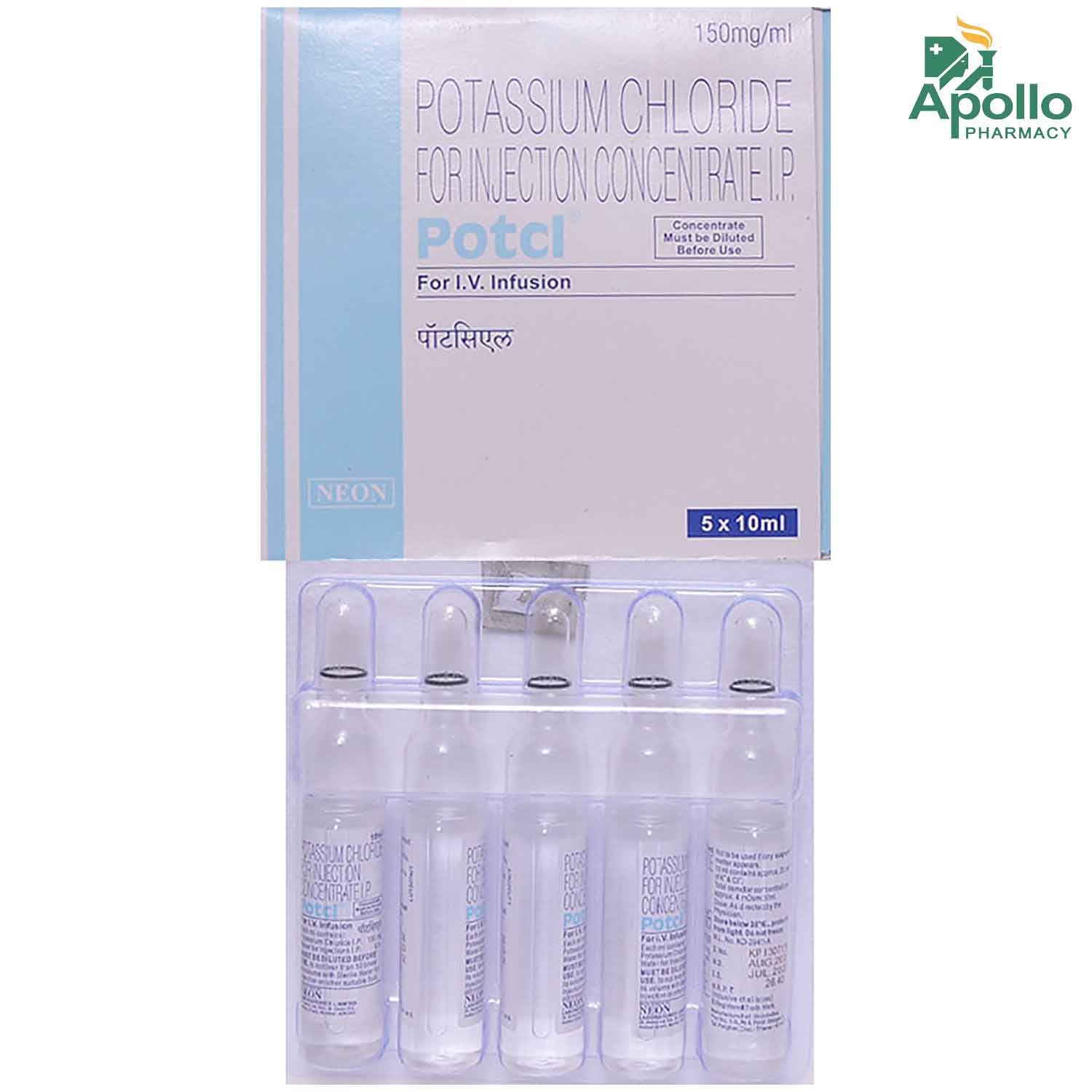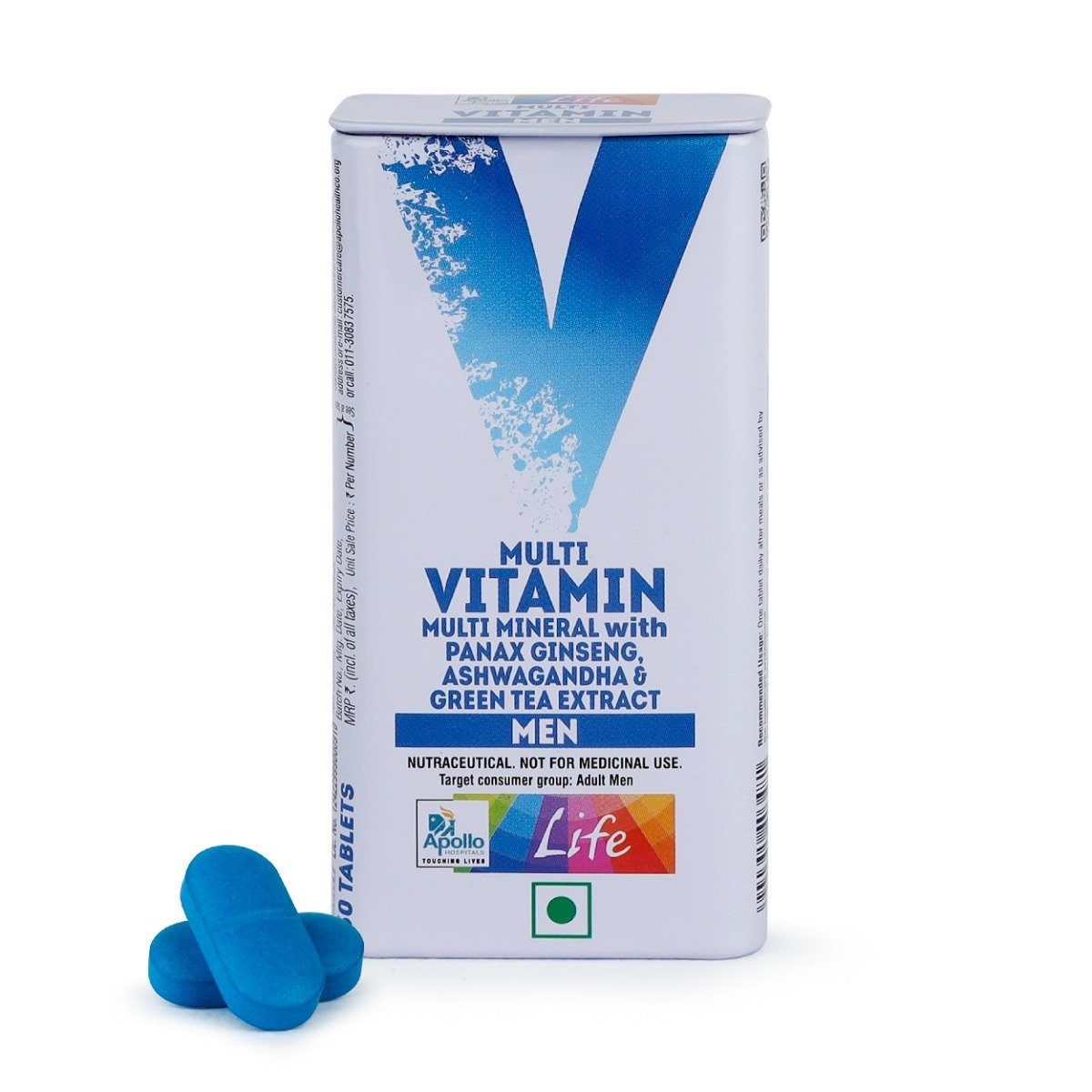Potassium Chloride Injection

MRP ₹25.5
(Inclusive of all Taxes)
₹3.8 Cashback (15%)
know your delivery time
Provide Delivery Location
Composition :
Manufacturer/Marketer :
Consume Type :
Expires on or after :
Return Policy :

Secure Payment

Trusted by 8 Crore Indians

Genuine Products
Therapeutic Class
Country of origin
Manufacturer/Marketer address
Author Details
We provide you with authentic, trustworthy and relevant information
Disclaimer
Alcohol
Safe if prescribed
It is unknown if alcohol affects Potassium Chloride Injection. Please consult your doctor.
Pregnancy
Consult your doctor
If you are pregnant or planning pregnancy, inform your doctor before receiving Potassium Chloride Injection. Your doctor may prescribe this medicine if the benefits outweigh the risks.
Breast Feeding
Consult your doctor
If you are breastfeeding, inform your doctor before receiving Potassium Chloride Injection. Your doctor may prescribe this medicine if the benefits outweigh the risks.
Driving
Safe if prescribed
Potassium Chloride Injection is unlikely to affect your ability to drive.
Liver
Consult your doctor
If you have a pre-existing or a history of liver disease, inform your doctor before receiving Potassium Chloride Injection. Your doctor may adjust the dose of this medicine or prescribe a suitable alternative based on your condition.
Kidney
Consult your doctor
You should not be given Potassium Chloride Injection if you have impaired kidney function. If you have kidney problems, inform your doctor before receiving Potassium Chloride Injection.
Children
Safe if prescribed
The safety and efficacy of Potassium Chloride Injection in children have not been fully established. Please consult your doctor.
Product Substitutes
About Potassium Chloride Injection
Potassium Chloride Injection belongs to the group of medicines called electrolyte replacement solutions indicated in the treatment of potassium deficiency when oral treatment is not feasible or dietary measures are inadequate.
Potassium Chloride Injection contains ‘Potassium chloride’, which works by replenishing the potassium, thereby treating hypokalaemia/potassium deficiency.
In some cases, Potassium Chloride Injection may cause side effects such as pain at the site of injection, nausea, muscle weakness, and tingling sensation. Most of these side effects do not require medical attention and will resolve gradually over time. However, you are advised to talk to your doctor if the side effects persist or worsen.
Let your doctor know if you are allergic to Potassium Chloride Injection. Inform your doctor if you are pregnant or breastfeeding before. Keep your doctor informed about your health condition and medicines to rule out any side effects/interactions.
Uses of Potassium Chloride Injection
Medicinal Benefits Mweb
Key Benefits
Potassium Chloride Injection belongs to the group of medicines called electrolyte replacement solutions indicated in the treatment of potassium deficiency when oral treatment is not feasible or dietary measures are inadequate. Potassium Chloride Injection contains ‘Potassium chloride’, which works by replenishing the potassium, thereby treating hypokalaemia/potassium deficiency.
Directions for Use
Side Effects of Potassium Chloride Injection
- Pain at the site of injection
- Nausea
- Muscle weakness
- Tingling sensation
Drug Warnings
Do not take Potassium Chloride Injection if you are allergic to any of its components, if you have hyperkalaemia (high potassium levels), impaired kidney function, Addison’s disease (hormonal disorder), if you are very dehydrated, have heat cramps, or hyperchloraemia (electrolyte disturbance in which there is an abnormally elevated level of the chloride ion in the blood). Inform your doctor if you have heart disease or have had a severe injury such as a burn. Consult your doctor if you are pregnant or breastfeeding.
Drug-Drug Interactions
Drug-Drug Interactions
Login/Sign Up
Taking Mepenzolate and Potassium Chloride Injection 10 ml(in tablet or capsule form) together can increase the risk of stomach ulcers, bleeding, and other gastrointestinal injury.
How to manage the interaction:
Taking Mepenzolate with Potassium Chloride Injection 10 ml is not recommended, as it can lead to an interaction, it can be taken if a doctor has prescribed it. However, if you experience severe stomach pain, bloating, sudden lightheadedness or dizziness, nausea, vomiting (especially with blood), decreased hunger, dark, tarry stools, consult the doctor immediately.
Taking Cyproheptadine with Potassium Chloride Injection 10 ml can increase the risk of stomach ulcers.
How to manage the interaction:
Taking Cyproheptadine with Potassium Chloride Injection 10 ml is not recommended, as it can lead to an interaction, can be taken if your doctor has prescribed it. However, if you experience severe stomach pain, bloating, sudden lightheadedness or dizziness, nausea, vomiting (especially with blood), decreased hunger, dark, tarry stools, consult the doctor immediately. Do not stop any medication without talking to a doctor.
Taking Difenoxin and Potassium Chloride Injection 10 ml (in tablet or capsule form) together can increase the risk of stomach ulcers, bleeding, and other gastrointestinal injury.
How to manage the interaction:
Taking Difenoxin with Potassium Chloride Injection 10 ml is not recommended, as it can lead to an interaction, it can be taken if a doctor has prescribed it. However, if you experience severe stomach pain, bloating, sudden lightheadedness or dizziness, nausea, vomiting (especially with blood), decreased hunger, dark, tarry stools, consult the doctor immediately.
Taking Procyclidine and Potassium Chloride Injection 10 ml together can increase the risk of stomach ulcers.
How to manage the interaction:
Taking Procyclidine with Potassium Chloride Injection 10 ml is not recommended, but it can be taken together if advised by a doctor. However, if you experience severe stomach pain, bloating, sudden lightheadedness or dizziness, nausea, vomiting (especially with blood), decreased hunger, or dark, tarry stools, consult the doctor immediately. Do not discontinue any medications without a doctor's advice.
Taking Doxepin with Potassium Chloride Injection 10 ml can increase the risk of stomach ulcers.
How to manage the interaction:
Taking Doxepin with Potassium Chloride Injection 10 ml is not recommended, as it can lead to an interaction, but it can be taken if a doctor has prescribed it. However, if you experience severe stomach pain, bloating, sudden lightheadedness or dizziness, nausea, vomiting (especially with blood), loss of appetite, or dark, tarry stools, consult the doctor immediately. Do not discontinue any medications without a doctor's advice.
Taking Tolterodine and Potassium Chloride Injection 10 ml together can increase the risk of side effects.
How to manage the interaction:
Although there is an interaction between Tolterodine and Potassium Chloride Injection 10 ml, they can be taken if prescribed by a doctor. However, contact a doctor immediately if you develop severe abdominal pain, bloating, sudden dizziness or lightheadedness, nausea, vomiting (especially with blood), or less desire to eat. Do not discontinue medications without consulting a doctor.
Co-administration of Flavoxate with Potassium Chloride Injection 10 ml can increase the risk of stomach ulcers.
How to manage the interaction:
Taking Flavoxate with Potassium Chloride Injection 10 ml is not recommended, as it can lead to an interaction, it can be taken if a doctor has prescribed it. However, if you experience severe stomach pain, bloating, sudden lightheadedness or dizziness, nausea, vomiting (especially with blood), decreased hunger, or dark, tarry stools, consult the doctor immediately. Do not discontinue the medication without consulting a doctor.
Co-administration of Dimenhydrinate and Potassium Chloride Injection 10 ml can increase the risk of stomach inflammation.
How to manage the interaction:
Co-administration of Dimenhydrinate with Potassium Chloride Injection 10 ml is generally not recommended, as it can lead to an interaction, it can be taken when a doctor has prescribed it. However, if you experience severe stomach pain, sudden dizziness, vomiting (especially with blood), or dark stools, consult the doctor immediately. Do not discontinue any medications without a doctor's advice.
The combination of Amitriptyline and Potassium Chloride Injection 10 ml may cause stomach and upper intestinal discomfort. (Only applicable to an oral preparation)
How to manage the interaction:
Although co-administration of Amitriptyline and Potassium Chloride Injection 10 ml is not recommended as it can possibly lead to an interaction, they can be taken if prescribed by a doctor. If you experience severe stomach pain, bloating, sudden dizziness or lightheadedness, nausea, vomiting (in particular with blood), decreased hunger, and black stools while taking these medications, consult a doctor immediately. Do not discontinue any medications without talking to a doctor.
Taking Potassium Chloride Injection 10 ml with clidinium bromide may increase the risk of irritant effects of potassium on your stomach and upper intestine.
How to manage the interaction:
Co-administration of Potassium Chloride Injection 10 ml with clidinium bromide is not recommended, it can be taken if prescribed by the doctor. However, if you experience symptoms such as severe stomach pain, bloating, sudden dizziness or lightheadedness, nausea, vomiting (especially with blood), decreased hunger, black, tarry stools, consult the doctor immediately. Do not discontinue any medications without consulting a doctor.
Drug-Food Interactions
Drug-Food Interactions
Login/Sign Up
Drug-Diseases Interactions
Drug-Diseases Interactions
Login/Sign Up
Drug-Drug Interactions Checker List
- AMILORIDE
- SPIRONOLACTONE
- TRIAMTERENE
- ALISKIREN
- CICLOSPORIN
- TACROLIMUS
Habit Forming
Special Advise
- Continuous monitoring of Electrocardiogram (ECG) is advised.
- Urine flow, serum electrolyte levels, and acid-base status should be monitored.
Diet & Lifestyle Advise
- Follow a well-balanced diet.
- Exercising regularly helps in improving overall health.
- Rest well, and get plenty of sleep.
- Avoid smoking and alcohol consumption.
- Try meditation or yoga, as they can help lower stress.
- Avoid processed and fried food.
All Substitutes & Brand Comparisons
RX
Out of StockK-Pot 150mg Injection
Casca Remedies Pvt Ltd
₹11.5
(₹1.04/ 1ml)
54% CHEAPERRX
Potcl 150 mg Injection 10 ml
Neon Laboratories Ltd
₹25
(₹2.25/ 1ml)
2% CHEAPER
Buy best Health & Nutrition products by
Vlado Sky Enterprise Pvt Ltd
Abbott India Ltd
Sun Pharmaceutical Industries Ltd
Apollo Healthco Limited
Zydus Healthcare Ltd
Macleods Pharmaceuticals Ltd
West Coast Pharmaceuticals Pvt Ltd
Intas Pharmaceuticals Ltd
Mankind Pharma Pvt Ltd
Meyer Organics Pvt Ltd
Emcure Pharmaceuticals Ltd
Lupin Ltd
Alkem Laboratories Ltd
Nutritionalab Pvt Ltd
Eris Life Sciences Ltd
Akumentis Healthcare Ltd
British Biologicals
La Renon Healthcare Pvt Ltd
Cipla Ltd
Micro Labs Ltd
Zuventus Healthcare Ltd
Torrent Pharmaceuticals Ltd
Pharmed Ltd
Dr Reddy's Laboratories Ltd
Modi Mundipharma Pvt Ltd
Corona Remedies Pvt Ltd
Hindustan Unilever Ltd
Indchemie Health Specialities Pvt Ltd
Apex Laboratories Pvt Ltd
Koye Pharmaceuticals Pvt Ltd
Leeford Healthcare Ltd
Bioceutics Inc
East West Pharma India Pvt Ltd
Alniche Life Sciences Pvt Ltd
FDC Ltd
Alembic Pharmaceuticals Ltd
Aristo Pharmaceuticals Pvt Ltd
DR Johns Lab Pharma Pvt Ltd
Herbs Nutriproducts Pvt Ltd
Guardian Healthcare Services Pvt Ltd
Vasu Organics Pvt Ltd
Pulse Pharmaceuticals
Fourrts India Laboratories Pvt Ltd
TTK Healthcare Ltd
Raptakos Brett & Co Ltd
USV Pvt Ltd
Glanbia Performance Nutrition India Pvt Ltd
Morepen Laboratories Ltd
Innovcare Life Sciences Pvt Ltd
Linux Laboratories Pvt Ltd
Troikaa Pharmaceuticals Ltd
Cadila Pharmaceuticals Ltd
Bright Lifecare Pvt Ltd
Wockhardt Ltd
Sanofi India Ltd
Primus Remedies Pvt Ltd
Zydus Cadila
Kellogg India Pvt Ltd
Tablets India Ltd
Indoco Remedies Ltd
Medley Pharmaceuticals Ltd
Overseas Health Care Pvt Ltd
Procter & Gamble Health Ltd
Shri Balaji Overseas
Dabur India Ltd
Ordain Health Care Global Pvt Ltd
Systopic Laboratories Pvt Ltd
Ajanta Pharma Ltd
Daris Biocare
Health & Happiness (H&H) Trading India Pvt Ltd
Hexagon Nutrition Pvt Ltd
Nutricia International Pvt Ltd
Zee Laboratories Ltd
Aareen Healthcare Pvt Ltd
Aeronutrix Sports Products Pvt Ltd
Emami Ltd
Radicool Pharmaceuticals Pvt Ltd
Wanbury Ltd
Biovitamins Pvt Ltd
Cadila Healthcare Ltd
Esmatrix Life Sciences Pvt Ltd
Ipca Laboratories Ltd
Klm Laboratories Pvt Ltd
Lloyd Healthcare Pvt Ltd
Sain Medicaments Pvt Ltd
Septalyst Lifesciences Pvt Ltd
Tas Med India Pvt Ltd
Wallace Pharmaceuticals Pvt Ltd
Biorex Healthcare Pvt Ltd
Elbrit Life Sciences Pvt Ltd
Levin Life Sciences Pvt Ltd
Panacea Biotec Ltd
Adret Retail Pvt Ltd
Cipla Health Ltd
Delcure Life Sciences Ltd
Femura Pharmaceuticals Pvt Ltd
Gladstone Pharma India Pvt Ltd
GlaxoSmithKline Consumer Healthcare Ltd
Kepler Healthcare Pvt Ltd
Ronyd Healthcare Pvt Ltd
SPECIALITY SUPPLEMENT
CALCIUM
IRON
VITAMIN D
COLLAGEN
VITAMIN B12
VITAMIN C
FISH OIL OMEGA
VITAMIN B
MULTIVITAMIN
Adult Nutrition Drink
ZINC
SEXUAL HEALTH SUPPLEMENT
WHEY PROTEIN
Kids Nutrition Drink
VITAMIN B9
ENERGY DRINK
SPECIALITY NUTRITION DRINK
DRY FRUIT
HERBAL JUICE
VITAMIN E
Prebiotic & Probiotic
ORS
SUGAR SUBSTITUTE
WOMEN & MOTHER NUTRITION DRINK
Chyawanprash
MAGNESIUM
Protein Bar
BREAKFAST CEREAL
Protein Powder
BIOTIN
DIABETIC NUTRITION DRINK
Honey
WEIGHT LOSS
Fat Burner
PLANT PROTEIN POWDER
VITAMIN B1
Apple Cider Vinegar
MELATONIN
APPETITE STIMULANT
Meal Replacement
Peanut Butter
AMINO ACID
Flax seed Oil
INFUSION TEA
NUT & SEED
Ashwagandha
Instant Food
OATS
Olive Oil
Mass Gainer
Pre Workout
CURCUMIN
POTASSIUM
VITAMIN A
DISKETTE
L-Carnitine
Cod Liver Oil
CREATINE
MILLETS & CEREALS
VITAMIN B6
ARGININE
COENZYME Q10
Shilajit
Appetite Suppressant
Chromium
MILK THISTLE
Glutathione
VITAMIN B2
VITAMIN K
L-Glutamine
MORINGA
GARCINIA CAMBOGIA
GREEN TEA
SPIRULINA
ALPHA-LIPOIC ACID
GLUCOSAMINE
GOKSHURA
BCAA Protein Powder
GILOY
NEEM
SAFFRON
SELENIUM
TRIPHALA
Tulsi
VITAMIN B3
VITAMIN B5
Brahmi
CANDIES
FRUIT JUICE
Face Gel
Specialty Supplements
WEIGHT GAINER
WHEAT GRASS POWDER
Frequently Bought Together
Customers Also Bought

_0.jpg?tr=q-85)







